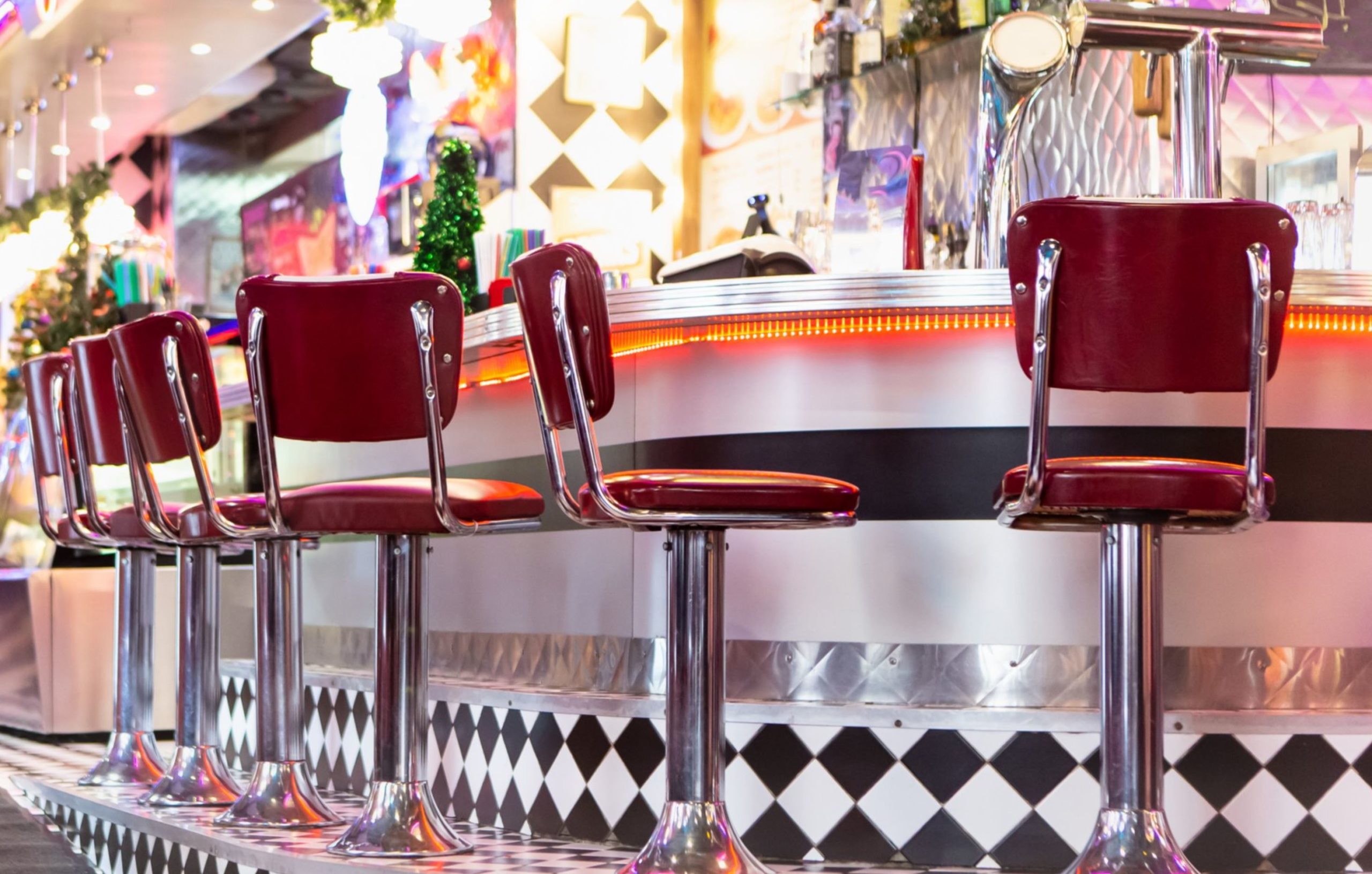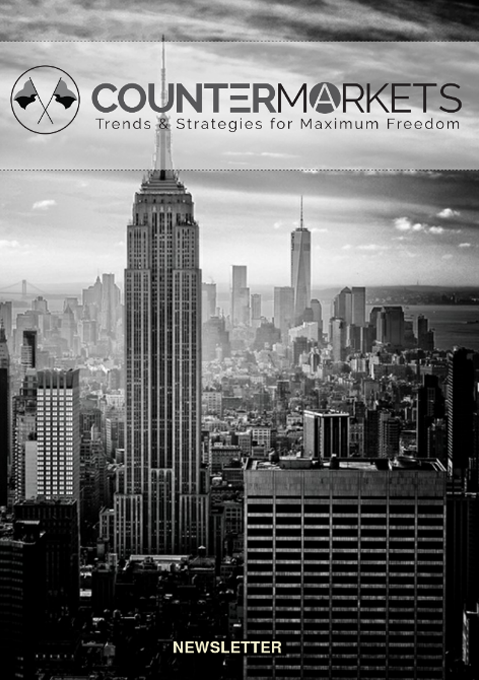 By John Tamny
By John Tamny
At lunch last week at a diner-style restaurant with an old friend in a fancy part of northern Virginia, the friend talked of how his daughter had been working as a hostess at one of the most famous restaurants in a southern city known for its famous restaurants. Due to mass hysteria among politicians related to Coronavirus, and that has led to the recent shuttering of all kinds of businesses, she was laid off.
Notable is that she didn’t hole up in her apartment out of fear of contracting the virus, nor did she come home to wait out the health scare with her parents. She’s presently with her boyfriend at the family’s vacation house in Florida.
In Washington, D.C., in many ways the epicenter of the political freakout over Coronavirus, it’s fascinating to watch well-heeled shoppers at the city’s grocery stores. Even though the shelves are largely well-stocked with the exception of paper products, the well-to-do buy indiscriminately; loading their carts up with hundreds of dollars in grocery items. It should be stressed that they’re doing this even though grocery store aisles don’t look all that different today compared to a month ago.
These two anecdotes rate mention for what they perhaps say about the economic state of a country in the midst of a panic over an allegedly spreading virus. In a sense, there’s a part of the U.S. that is so rich that this is all a vacation. For the college-educated restaurant employee mentioned at the beginning of this piece, she’ll wait out the hysteria with her boyfriend in the sun.
For the well-to-do American professional class, they’ll buy enormous amounts of food that will to varying degrees perish; that, or they’ll buy non-essentials to cook simply because they have time to do so. As a stocker at Safeway told me, cake, cookie and muffin mixes are flying off of the shelves. For the affluent patrons of all too many grocery stores in Washington, D.C., they’ll buy food they don’t need while buying other mixes and ingredients with an eye on fulfilling their inner baker as they comfortably wait this one out.
Sadly, it’s these affluent types who in a broad sense are making brutal economic decisions for those not so flush. Call the Coronavirus a “rich man’s virus.” Please read on.
Indeed, imagine if Covid-19 had reached the U.S. fifty years ago, or even twenty-five years ago. It’s safe to say that the hysterical response wouldn’t have been a shutdown of so much of the U.S. economy. The latter wouldn’t have happened simply because it couldn’t have happened. Even though the U.S. was the richest country in the world in 1970 and 1995, very few had the capacity to be shut down for a few weeks by witless politicians whose responses to problems always and everywhere create much worse than the problem itself.
But here lies the problem, and it’s something that left-leaning Los Angeles Times commentator Michael Hiltzik hit on in a recent column: so much of what’s happening with Coronavirus will harm those with the least the most. Well, of course it will. The shame is that Hiltzik doesn’t understand why the poor will be harmed the most.
That’s the case given the sad truth that Hiltzik’s reflexive response to nearly every presumed malady is wealth redistribution from the rich to the poor. He misses by a mile. He forgets that the rich, precisely because they are rich, are constantly redistributing their wealth to the poor. Since they have quite a bit more money than they have wants and needs to fulfill with that money, they can save and invest with great, economy-enhancing gusto. There are quite simply no companies and no jobs without investment first, so when the rich get to keep what’s theirs, whether earned or inherited, we all benefit economically.
Which speaks to the other inconvenient truth routinely glossed over by Hiltzik and his fellow redistributionists: where the rich are working, producing and inheriting is a magnet for the world’s poorest. Though it’s popular to suggest that wealth inequality harms the poor, there is no purer market signal than the migration of people. Looked at through the lens of the United States, it’s long been the world’s most unequal country at the same time that it’s been the country that the vast majority of the world’s poorest have yearned to migrate to. Stating what’s obvious to the passably sapient among us, where the rich are is where opportunity is most abundant for the poorest among us to fix their poverty.
Considering the above truth through migratory patterns among American-born, they’re generally not moving to Buffalo (NY), Detroit (MI), Jackson (MS), and Pueblo (CO) to improve the economic portion of their lives. More realistically, the least well-off of Americans are most likely to be found moving to the most centimillionaire and billionaire-dense parts of the U.S., including where Hiltzik scribbles: Los Angeles.
Of course all of this speaks to why those with the least are, and will be, harmed the most by the response of government and business to the Coronavirus scare. Figure that California on its own would be the fifth largest economy in the world if a country, and then one can only imagine where California, New York and Illinois would rate in combination. The economies in these rich-dense states have in many ways been shut down. The well-to-do will surely be hurt by what’s tragic, but all-too-many have savings, or they have parents who have savings, vacation houses, and other safety nets.
The poor don’t realistically have those backstops. Their jobs were and are their safety nets, but thanks to an economic shutdown overseen by an out-of-touch and affluent political class that will not see an income decline as a consequence of its actions, the poor increasingly don’t have jobs.
Worse is that with politicians intent on shutting the economy down, it’s unlikely that those most capable of creating new work opportunities through investment (yes, the rich) will do just that. Why invest in what’s not operating? And while consumption is a consequence of economic growth as opposed to a driver, millions of the poor “work” for businesses that meet the consumptive needs of individuals. Work is put quotes simply because millions fewer are working today.
Lefties will of course call for wealth redistribution at this time to fix the problem previously described. Such a stance combines non sequitur with insult. It’s a non sequitur simply because it would be unnecessary if the economy weren’t needlessly shut down, and it’s an insult for it presuming that the poor reflexively want handouts. No, as evidenced by the jobs they used to have, the greater truth is that the poor want the chance to improve their economic chances through hard work. That’s why they’re here.
So yes, the poor will suffer the most amid this tragic economic crack-up authored first and foremost by elite politicians who, arguably influenced by how their own work can be shut down or done remotely, have decreed that the work of others can similarly be discontinued or done remotely for stretches. Politicians will weather this lapse of reason, so will the backstopped well-to-do, but not the poor among us. Their work is a destination, and those destinations are increasingly quiet.
Let’s be very clear about what’s happening: Coronavirus is a rich man’s disease, and the economy-crushing shutdown something created by the relatively rich. The poor? They’ll be the victims of this freakout borne of mass affluence. That diner mentioned at the beginning of this piece, and that serves a well-to-do crowd that includes bold-faced political names, was closed last Thursday for the duration of the Covid-19 scare. Readers know why, and they know who will most suffer its closure.
This piece first appeared in RealClearMarkets
John Tamny, research fellow of AIER, is editor of RealClearMarkets. His book on current ideological trends is: They Are Both Wrong (AIER, 2019)
